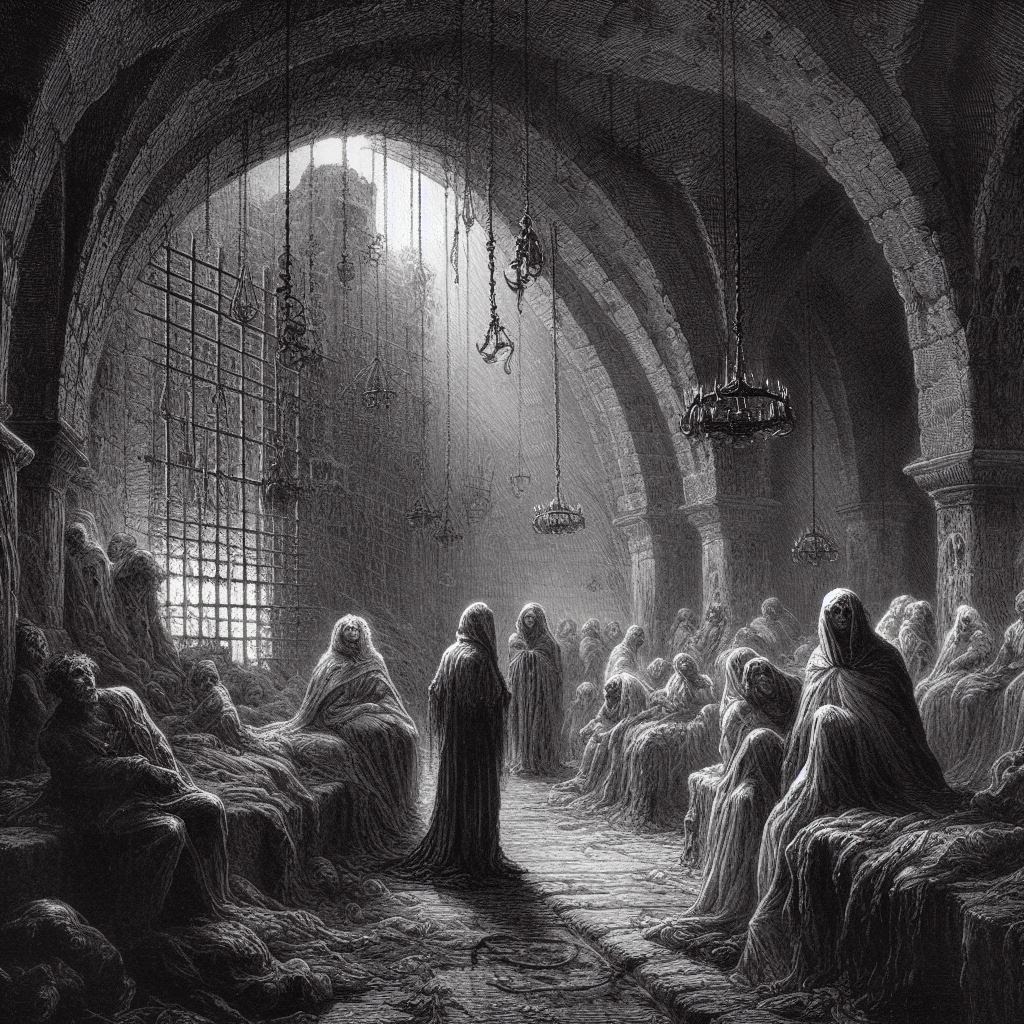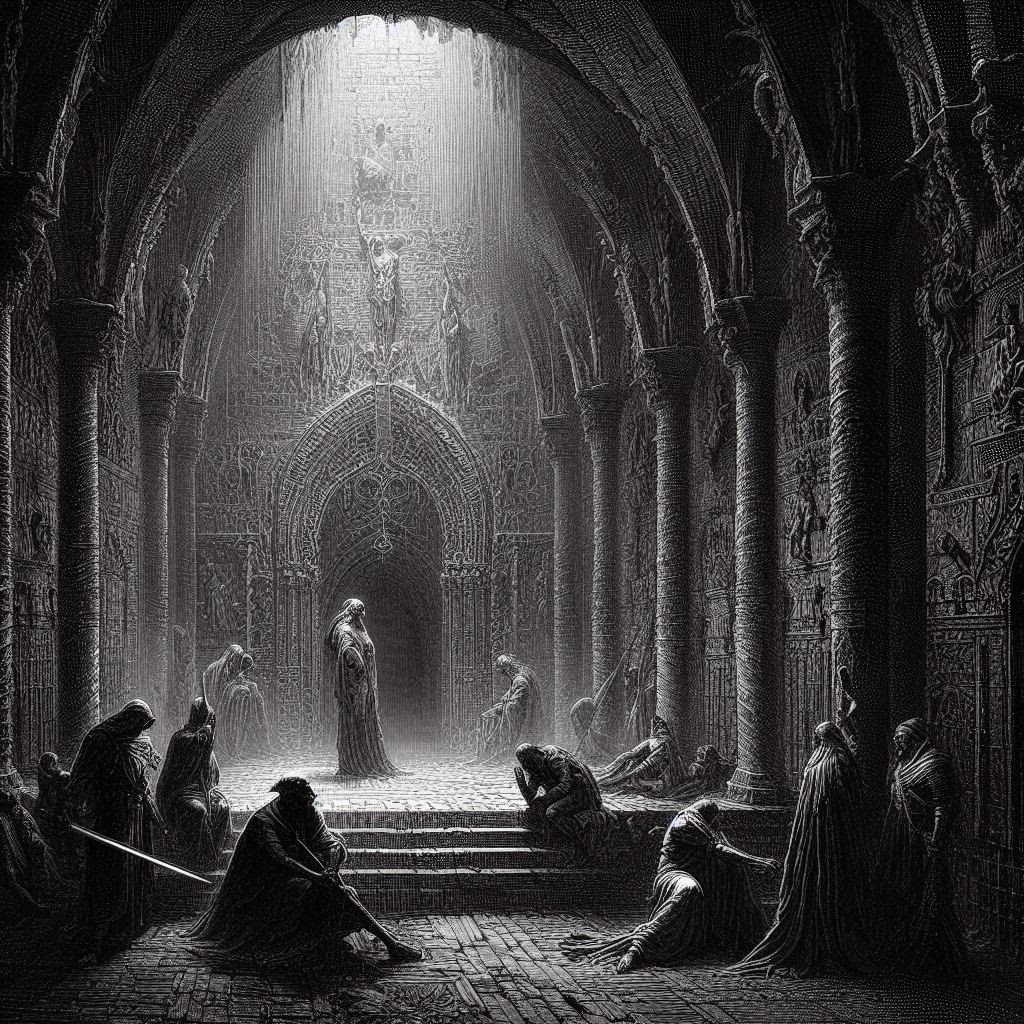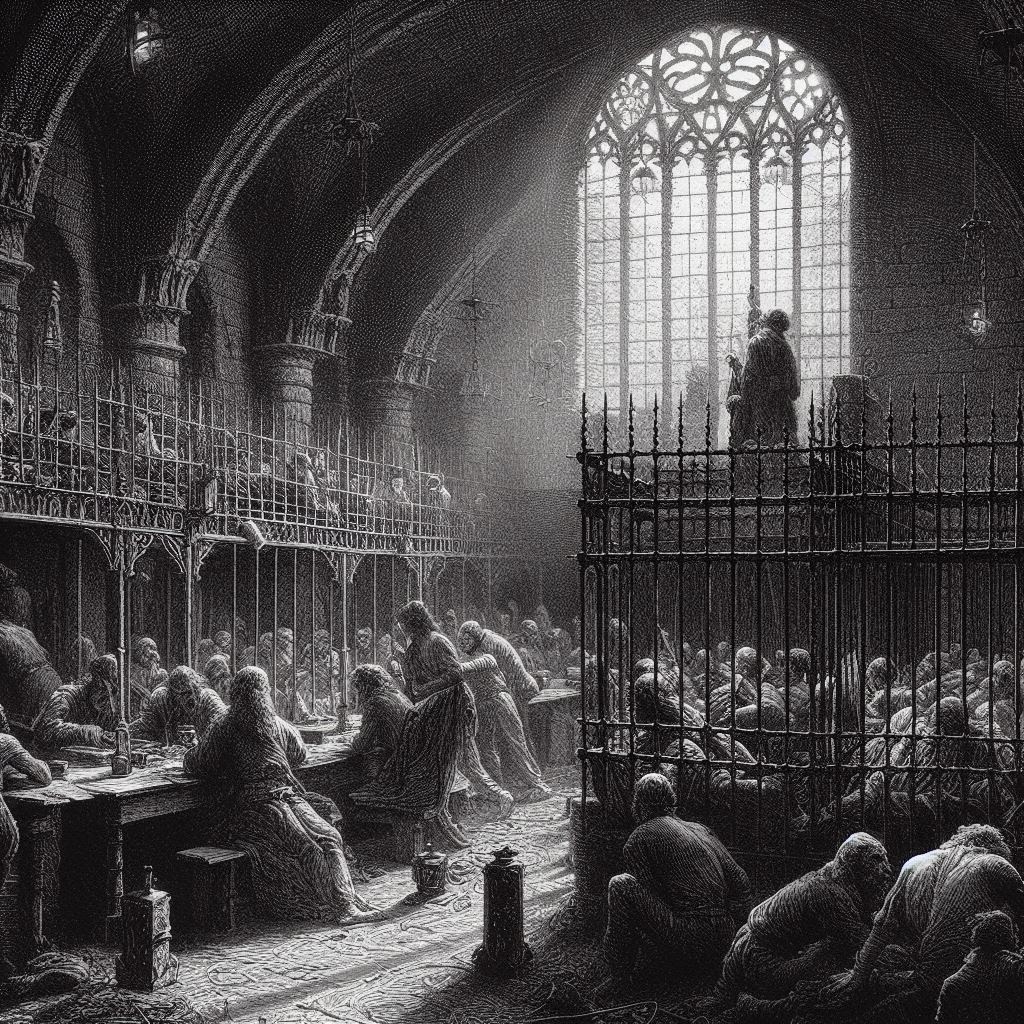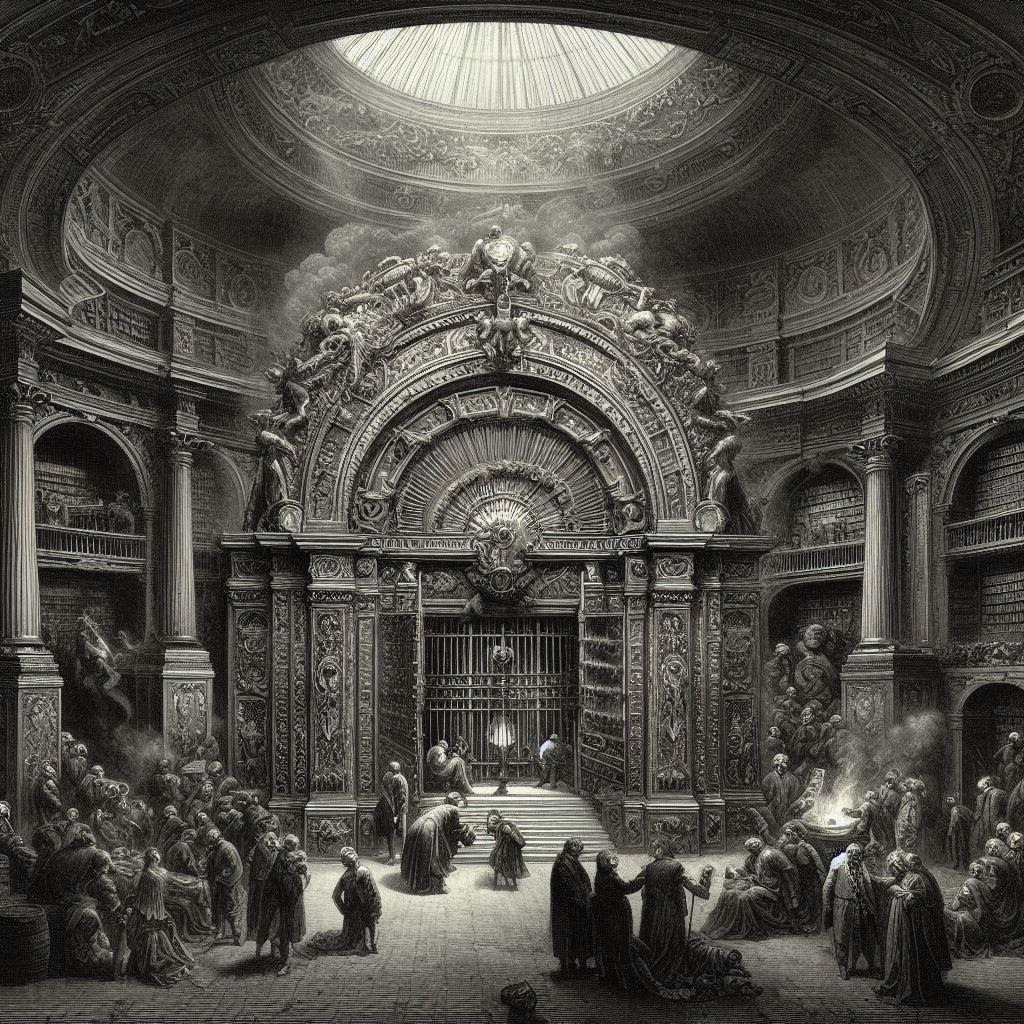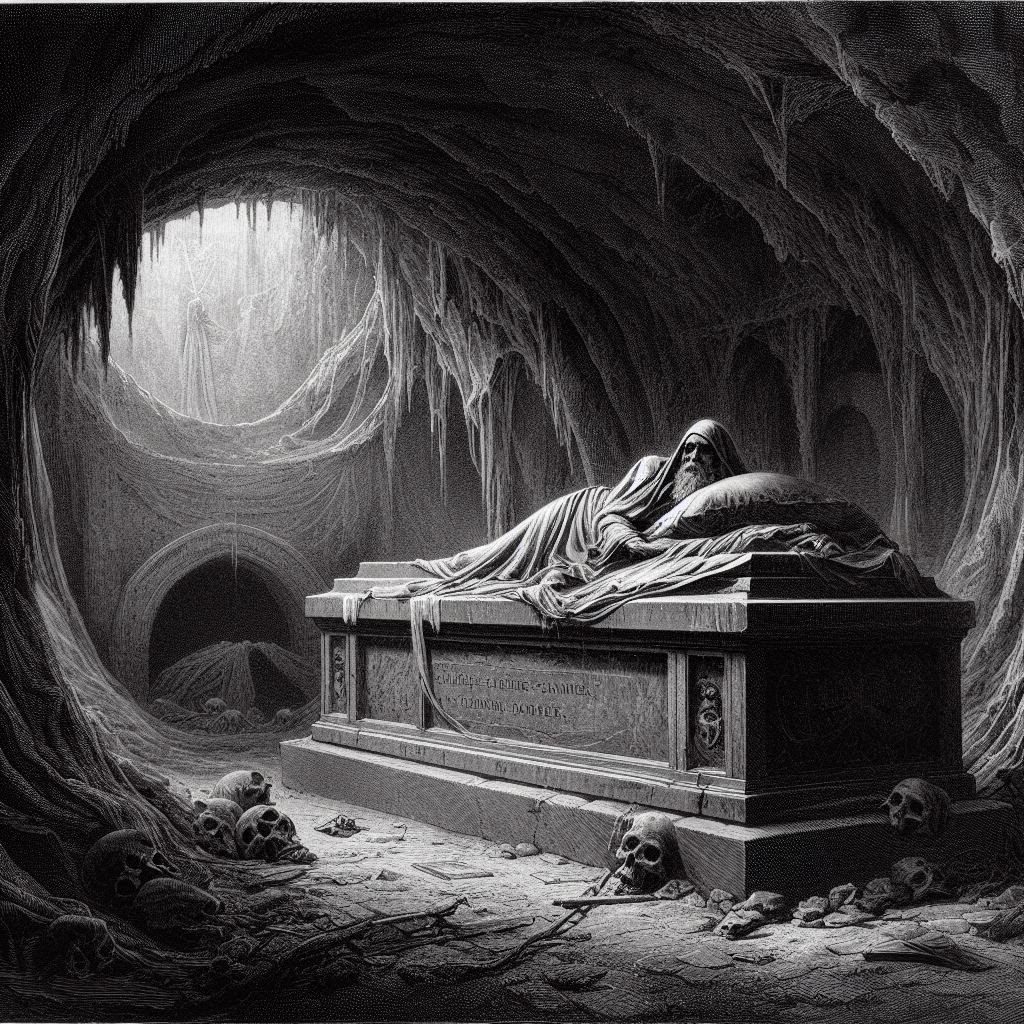Tei Pao looked uneasily at the clearing, a circular patch of open space somehow devoid of trees or brush. A clump of rocks lay near but not quite at the center. Otherwise low grass covered all until it reached the edge of the surrounding forest. He held up his hand to signal Huin behind him. The mercenary stopped short with a surprised huff and glowered at him. "What is it?" he whispered.
Pao didn't turn. "I don't know," he replied in a low tone, "but something feels off."
"To hell with your feelings."
"Why are there no trees-- hell, no shrubs? Nothing but grass." He paused. "There aren't even any fallen branches. How is that possible?"
A handful of birds drifted lazily out from the canopy and began to descend toward the floor of the clearing. Tei Pao glanced at them, then back to the clearing. "The whole thing looks far too circular to just be random. I don't like it. I say we go around."
The birds settled quietly on the ground and began to peck around. Huin snorted. "We've been hacking through the undergrowth for hours, and when we finally reach open ground--"
Suddenly and silently, bright red tendrils erupted from the floor of the clearing a few feet behind the birds. There were half a dozen of them, long, thin, and sinuous. Each one arced forward and grasped at a bird, grabbing at the heads. Two birds managed to take wing, but the pursuing limbs shot after them like a frog's tongue catching flies. In barely enough time to even register what was happening, the two men watched the red streamers wring each bird's neck, breaking them, and then flinging the carcasses far into the trees in one continuous motion. Then they silently slithered back into the ground. Soon, only the grass remained, but with a few scattered patches of feathers or specks of blood.
Without a word the two men turned and moved back along the trail they had just made.
--------------------------
An unknown civilization in the distant past buried unageing monsters in the earth to guard their graves. Sages aver that the ancient and proper name for these abominable things is Strife-of-Tongues. The woodcutters of the Yeng call them Lickers.
Each licker is housed inside a spherical casing made of some substance with the look of bone but the feel of stone. Whether this is its natural shell or its arcane cage is unclear. It is thought that the sphere amplifies vibrations in the soil, helping the Strife-of-Tongues locate its victims. The sphere and the organism inside is generally found two or three yards beneath the surface. A system of roots grow down through tiny apertures in the lower half of the sphere to anchor it and presumably to take in nutrients. The top of casing contains ten to twelve larger holes, each about two inches wide. These are for the use of the "tongues", red prehensile appendages of a leathery texture and impressive strength, anywhere from ten to twenty feet in length. They bore swiftly through the ground and burst through the surface to strike at anything that comes within their range.
Smaller animals such as birds or mice are killed as quickly as possible and the carcass thrown outside the circle. Larger creatures are given a warning to frighten them away. This generally consists of the tongues snapping at the intruder like whips, or perhaps wrapping around the leg and attempting to drag it back towards the edge of the circle. If the trespasser persists in its encroachment on the licker's territory or attempts to fight back, the attack of the tongues becomes lethal. They may attempt to constrict by wrapping around the ribs and squeezing. Or they may try to grab the head and snap the neck. Occasionally they get creative and grab two of the creatures limbs, then pull each in a different direction until flesh and bone separate.
Any remains will be pushed or hurled outside the circle. The licker keeps its territory (considered to be anything in the range of its tongues) meticulously free of most debris, so as to not impede its detection of intruders or the mobility of its tongues. Branches and other deadfall from the trees are cleared away, and any sapling that grows higher than a few inches is also uprooted and cast out. One thing that the licker will not interfere with, however, is stone. To be sure, if it is hit by a stone weapon, it will retaliate if possible. But if a rock lands on its territory, it will send out a tongue to feel it, and upon feeling its texture, ignore it thenceforth, accepting it as just part of the landscape. It is thought that this is some innate programming in the creatures' behavior by whatever wizard first dreamt it up, so that it would not attack the megalithic stones used to build the burial chambers that they were (generally) placed to guard.
These dolmen-like structures sometimes still exist within the licker's circle, although occasionally the ravages of time or changes to the environment have wiped them out or buried them far deeper than their rooted guardian. The few of these tombs that have been explored and looted have yielded curious artifacts but very little clues as to the nature of their builders.
Larger debris such as fallen trees may tax even the great strength of the tongues, and it will take time for them to clear them. They may start a fire by means of friction and retreat below ground, leaving the log to burn to a more manageable state. Such blazes can easily become larger conflagrations should they reach the surrounding forest.
There seems to be no limit on the lifespan of these organisms. Any tongue that is cut off will regrow within a matter of weeks, although it may take up to half a year to reach its full length. The few that have been killed were ones which were partially unearthed due to earthquakes or landslides. The casing once broken (a difficult task), the creature within appeared to be little more than a pink pulsating blob of indeterminate shape. Any attempts at communication via mundane or magical means proved unfruitful. Once dead, the strife-of-tongues quickly decomposes, releasing a foul-smelling vapor which contains bacteria highly lethal to any who breathe it in.
Fortunately the territory of a licker is usually fairly obvious to spot and avoid, being a near perfect circle of grassland within a forest, often with a megalithic tomb toward its center. A submerged licker is incredibly difficult to combat, but should you manage to destroy all of its tongues you should be free to access the dolmen and plunder it.

